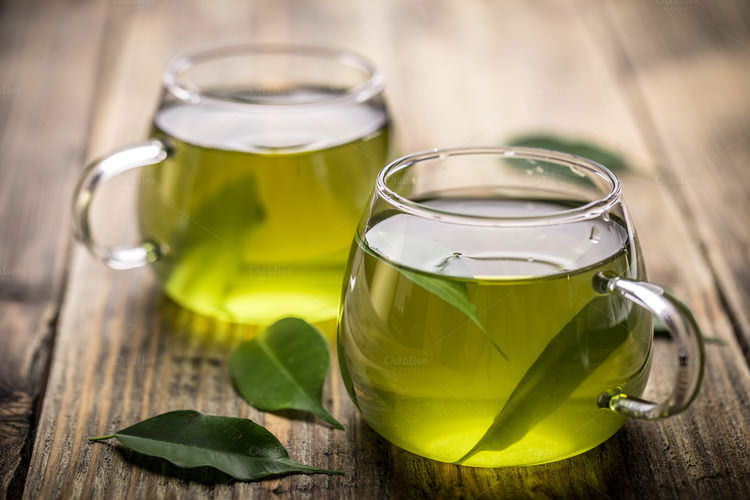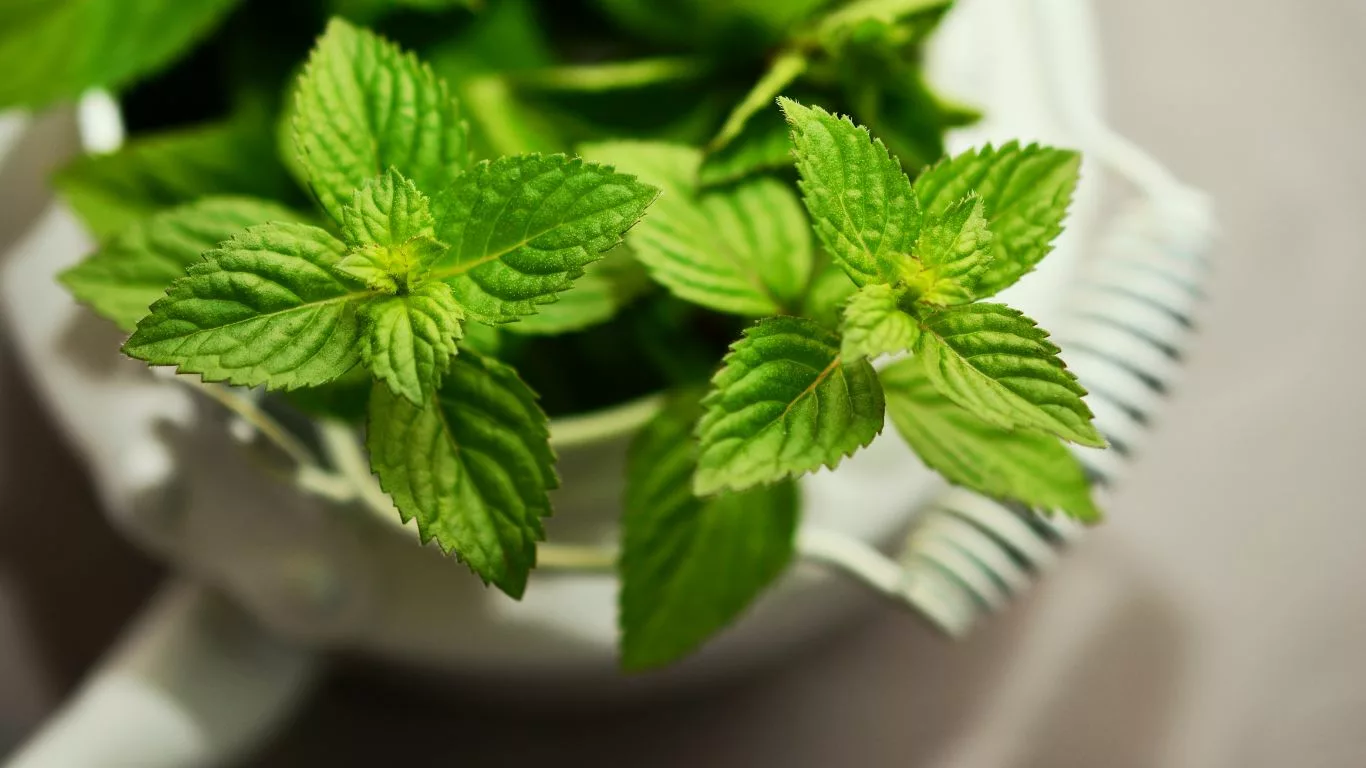Peppermint for Acid Reflux: Natural Relief
Discover the potential benefits of peppermint for acid reflux relief. Learn about its effects, precautions, and how to incorporate it into your management plan.
Introduction
Acid reflux is a common digestive disorder that affects millions of people worldwide. Characterized by the regurgitation of stomach acid into the esophagus, it can cause uncomfortable symptoms like heartburn, chest pain, and difficulty swallowing. While there are various medications available to manage acid reflux, some individuals seek natural remedies to alleviate their symptoms. One such remedy that has gained attention is peppermint. In this comprehensive article, we’ll explore the potential benefits of peppermint for acid reflux relief and how you can incorporate it into your management plan.
Understanding Acid Reflux
Acid reflux occurs when the lower esophageal sphincter (LES), a ring of muscle between the esophagus and the stomach, fails to close properly. This allows stomach acid to flow back into the esophagus, leading to irritation and discomfort. Common risk factors for acid reflux include obesity, pregnancy, smoking, and certain medical conditions like hiatal hernia. If left untreated, chronic acid reflux can lead to more severe complications like esophagitis and Barrett’s esophagus.
The Role of Peppermint in Acid Reflux Relief
Peppermint, scientifically known as Mentha piperita, is an aromatic herb that has been used for centuries for its medicinal properties. It contains compounds like menthol that have a soothing effect on the gastrointestinal tract, making it a potential candidate for managing acid reflux symptoms. Peppermint is available in various forms, including fresh leaves, essential oil, tea, and enteric-coated capsules.

What Causes Acid Reflux?
Lower Esophageal Sphincter Dysfunction
The primary cause of acid reflux is a dysfunctional lower esophageal sphincter (LES). Normally, the LES acts as a one-way valve, allowing food to enter the stomach and preventing stomach acid from flowing back into the esophagus. When the LES weakens or relaxes inappropriately, acid reflux can occur. Certain factors like excessive caffeine intake, smoking, and high-fat diets can contribute to LES dysfunction.
Hiatal Hernia and Acid Reflux
A hiatal hernia is another potential cause of acid reflux. It happens when a part of the stomach protrudes into the chest through the diaphragm, disrupting the normal function of the LES and allowing acid to reflux into the esophagus. Hiatal hernias can be congenital or develop over time due to factors such as increased abdominal pressure from heavy lifting or chronic coughing.
Dietary Triggers for Acid Reflux
Certain foods and beverages can trigger or worsen acid reflux symptoms. Common dietary triggers include spicy foods, citrus fruits, tomato-based products, fatty and fried foods, chocolate, caffeine, and alcohol. It’s essential to identify and avoid these trigger foods to manage acid reflux effectively. Additionally, maintaining a food diary can help individuals track their dietary intake and identify potential culprits for their symptoms.

Peppermint and its Potential Benefits
Overview of Peppermint
Peppermint is a hybrid mint that is a cross between watermint and spearmint. It is widely used as a flavoring agent in foods, beverages, and oral care products due to its refreshing taste and aroma. Beyond its culinary uses, peppermint has been treasured for its therapeutic properties, especially concerning digestive issues and respiratory conditions.
Peppermint’s Gastrointestinal Effects
Peppermint has a long history of traditional use for various gastrointestinal issues, including indigestion, bloating, and irritable bowel syndrome (IBS). Its active compound, menthol, has muscle relaxant properties that can help soothe digestive muscles and ease spasms in the intestines. This muscle-relaxing effect may be beneficial in reducing the frequency and severity of acid reflux episodes.
Studies on Peppermint and Acid Reflux
Several studies have investigated the potential benefits of peppermint for acid reflux relief. A randomized controlled trial published in the Journal of Gastroenterology in 2014 found that peppermint oil, when combined with caraway oil, significantly improved symptoms of non-ulcer dyspepsia, a condition that shares similarities with acid reflux. Another study published in the Journal of Clinical Gastroenterology in 2019 reported that peppermint oil improved the symptoms of functional dyspepsia, a common digestive disorder. While the results are promising, it’s essential to interpret them with caution as more research is needed to establish peppermint’s efficacy for this specific condition.

How Peppermint May Alleviate Acid Reflux Symptoms
Peppermint’s Impact on Lower Esophageal Sphincter
One way peppermint may help with acid reflux is by relaxing the lower esophageal sphincter. By doing so, it may reduce the pressure that pushes stomach acid back into the esophagus, thereby mitigating reflux episodes. However, it’s important to note that while this muscle relaxation effect might be beneficial for some individuals, it can potentially worsen symptoms for others, especially if they have underlying LES dysfunction. This highlights the importance of individualized treatment and consulting with a healthcare professional before using peppermint for acid reflux.
Peppermint’s Effect on Gastric Emptying
Delayed gastric emptying, a condition in which the stomach takes longer than usual to empty its contents into the small intestine, can contribute to acid reflux. Peppermint has been studied for its effect on gastric emptying, and some research suggests that it may promote more rapid emptying of the stomach. By aiding in the timely movement of stomach contents, peppermint may help prevent reflux episodes and reduce symptoms. However, the impact of peppermint on gastric emptying may vary among individuals, and further research is needed to fully understand its effects in the context of acid reflux.
Peppermint’s Role in Reducing Bloating and Gas
Individuals with acid reflux often experience bloating and excessive gas, which can exacerbate their symptoms. Peppermint’s carminative properties may help alleviate gas and bloating by relaxing the gastrointestinal muscles and allowing trapped gas to pass more easily. It’s important to note that while peppermint may provide relief for some, others may experience worsened symptoms due to its potential to relax the LES, leading to increased reflux.

Precautions and Considerations
Possible Side Effects of Peppermint
While peppermint is generally considered safe when consumed in moderate amounts, it can cause side effects in some individuals. These may include heartburn (ironically), allergic reactions, and gastrointestinal discomfort. Additionally, peppermint essential oil should never be ingested directly, as it is highly concentrated and can be toxic when consumed in large quantities. If you experience any adverse reactions to peppermint, discontinue its use and consult a healthcare professional.
Recommended Dosage and Form of Peppermint
If you decide to try peppermint for acid reflux, it’s crucial to follow the recommended dosage and form. Peppermint tea or enteric-coated peppermint capsules are often preferred to avoid potential irritation of the esophagus. The usual recommended dose of peppermint oil for digestive issues is 0.2 to 0.4 mL three times a day. However, it’s essential to consult with a healthcare provider to determine the appropriate dosage based on your individual health needs.
Contraindications with Other Medications or Conditions
Peppermint may interact with certain medications or exacerbate certain health conditions. For example, peppermint can relax the lower esophageal sphincter, potentially leading to increased reflux symptoms in individuals with pre-existing LES dysfunction. It may also worsen symptoms in individuals with gastroesophageal reflux disease (GERD). Additionally, peppermint oil may interfere with the absorption of certain medications, including cyclosporine and some antacids. It’s essential to consult your healthcare provider before using peppermint for acid reflux, especially if you have a history of gallbladder issues or are taking medications that affect the liver.

Lifestyle Changes to Manage Acid Reflux
Dietary Modifications for Acid Reflux Relief
Alongside considering peppermint, making dietary changes can be a valuable step in managing acid reflux. Avoiding trigger foods, eating smaller meals, and not lying down immediately after eating are some dietary modifications that may help. Additionally, maintaining a healthy weight and avoiding excessive consumption of alcohol and caffeine can further support acid reflux management.
Other Natural Remedies for Acid Reflux
Peppermint is not the only natural remedy that may help with acid reflux. Ginger, chamomile, and aloe vera are among the herbs that have been studied for their potential beneficial effects on acid reflux symptoms. These herbs may be consumed as teas or supplements and can be combined with peppermint for added relief.
Tips for Preventing Acid Reflux
Prevention is better than cure, and there are certain lifestyle habits that can help prevent acid reflux episodes. Maintaining a healthy diet, regular exercise routine, and stress management techniques can play a significant role in managing and preventing acid reflux symptoms. It’s also important to avoid eating large meals close to bedtime and elevate the head of the bed to reduce the likelihood of nighttime reflux.

Incorporating Peppermint into Your Acid Reflux Management
Peppermint Tea and Infusions
Peppermint tea is one of the most popular ways to consume peppermint for its potential gastrointestinal benefits. Brew a cup of peppermint tea by steeping fresh or dried peppermint leaves in hot water for 5-10 minutes. Drinking peppermint tea after meals may help soothe the digestive tract and reduce symptoms of acid reflux. You can also add honey or lemon to enhance the flavor and potential therapeutic effects.
Peppermint Supplements
If you prefer a more controlled dosage, enteric-coated peppermint supplements are available, which can deliver the herb to the intestines without causing irritation in the stomach or esophagus. These supplements often come in the form of soft gel capsules or coated tablets. Follow the recommended dosage provided by the manufacturer or consult with a healthcare professional for personalized guidance.
Combining Peppermint with Other Herbs
Peppermint can be combined with other herbs like chamomile or ginger for added synergistic effects. These herbal combinations are available as teas or supplements and may provide additional relief from acid reflux symptoms. It’s essential to be mindful of potential interactions between different herbs and medications, so consulting with a healthcare provider is recommended before starting any herbal combination.

Conclusion
Peppermint has long been appreciated for its pleasant taste and aroma, but its potential benefits extend beyond just flavoring. Studies suggest that peppermint may offer relief from acid reflux symptoms by relaxing the lower esophageal sphincter and promoting normal gastric emptying. However, it’s crucial to use peppermint with caution and follow recommended dosages to avoid potential side effects.
If you’re considering using peppermint as part of your acid reflux management, consult with your healthcare provider first, especially if you have any existing health conditions or are taking medications that may interact with peppermint. Additionally, remember that lifestyle changes, such as dietary modifications and stress management, can also play a significant role in managing acid reflux symptoms.
Overall, peppermint can be a valuable addition to your acid reflux management plan, but it’s essential to approach it mindfully and with proper medical guidance to ensure its effectiveness and safety.
References
- Mahadevan U, Kane S. American Gastroenterological Association Institute technical review on the use of gastrointestinal medications in pregnancy. Gastroenterology. 2006;131(1):283-311.
- Kligler B, Chaudhary S. Peppermint oil. Am Fam Physician. 2007;75(7):1027-1030.
- May B, Köhler S, Schneider B. Efficacy and tolerability of a fixed combination of peppermint oil and caraway oil in patients suffering from functional dyspepsia. Aliment Pharmacol Ther. 2000;14(12):1671-1677.
- van Rymenant E, Goossens A, van Hee R, et al. Peppermint oil in irritable bowel syndrome. J Gastroenterol Hepatol. 1995;10(4):455-458.
- Alammar N, Wang L, Saberi B, et al. The impact of peppermint oil on the irritable bowel syndrome: a meta-analysis of the pooled clinical data. BMC Complement Altern Med. 2019;19(1):21.
- National Institute of Diabetes and Digestive and Kidney Diseases (NIDDK). (2021). Gastroesophageal Reflux (GER) and Gastroesophageal Reflux Disease (GERD). Retrieved from https://www.niddk.nih.gov/health-information/digestive-diseases/acid-reflux-ger-gerd-adults#:~:text=Print%20All%20Sections-,Definition%20%26%20Facts,leads%20to%20complications%20over%20time.
Disclaimer: The information provided in this article is for informational purposes only and should not be considered as medical advice. Always consult with a qualified healthcare professional before using peppermint or any other herbal remedy for acid reflux or any other health condition. Individual responses to peppermint may vary, and certain individuals may experience adverse reactions. Use peppermint with caution, especially if you have underlying health issues or are taking medications that may interact with peppermint. The author and publisher of this article do not assume any liability for the use or misuse of the information provided herein.

Camellia Wulansari is a dedicated Medical Assistant at a local clinic and a passionate health writer at Healthusias.com. With years of hands-on experience in patient care and a deep interest in preventive medicine, she bridges the gap between clinical knowledge and accessible health information. Camellia specializes in writing about digestive health, chronic conditions like GERD and hypertension, respiratory issues, and autoimmune diseases, aiming to empower readers with practical, easy-to-understand insights. When she’s not assisting patients or writing, you’ll find her enjoying quiet mornings with coffee and a medical journal in hand—or jamming to her favorite metal band, Lamb of God.







